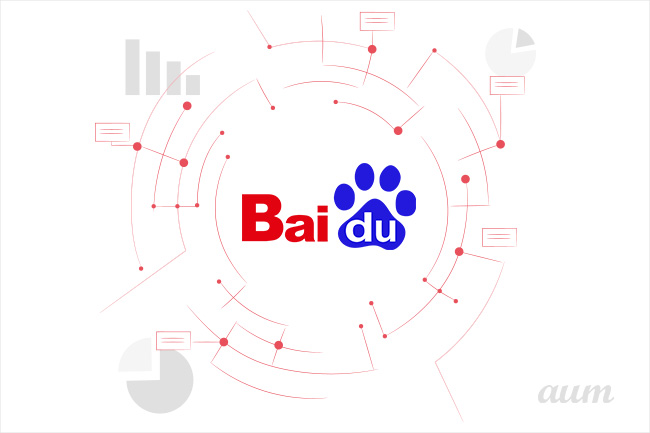Baidu China’s largest search engine dominates the digital scene with market share of 75% and above; so it is a crucial platform for any business looking to reach the Chinese markets.
Let’s take a deeper look at the search engine.
Introduction to Baidu
Baidu, which very often is called the “Google of China,” is a leading Chinese search engine and tech company. Baidu was founded in January 2000 as a full-service digital services provider, which provides search capabilities and online advertising along with cloud storage and other AI -related products. Baidu holds more than 75% of China’s search engine market, which makes it a powerful tool in the country’s online environment and therefore vital for any businesses that are looking to have an internet presence in this nation. Knowing Baidu’s unique features as well as its algorithmic peculiarities is essential for effective search engine positioning and successful online strategies focusing on the Chinese market.
Comparing Baidu and Google SERPs
Since leading search engines Baidu and Google differ significantly in their SERP presentations due to user preferences, regulatory environments, and regional nuances. For businesses that wish to develop their SEO strategies accordingly for the best possible visibility either in the Chinese or global digital terrain, being aware of these peculiarities is crucial.
| Threads Operation | Details | Comparison to Twitter |
|---|---|---|
| Feature | Baidu SERPs | Google SERPs |
| User Interface | Simpler and straightforward design | Varied and feature-rich design |
| Content Display | Emphasizes multimedia content: images, videos | Balanced mix of multimedia and textual content |
| Paid Advertising | Paid results are conspicuous and prominent | Paid results blend with organic results |
| Local Relevance | Prioritizes local content and Mandarin language | Local SEO is essential, but less emphasis on language |
| Censorship and Regulation | Adheres to strict Chinese censorship laws | Content is subject to region-specific regulations |
| Mobile-Centric Approach | Optimized for mobile platforms | Responsive design for both desktop and mobile |
Understanding Baidu’s Algorithm Landscape
Baidu is the leading search engine in China and has its own unique landscape of algorithms as compared to Western competitors. Navigating this terrain is essential to businesses trying to set up a strong online presence in the Chinese market and a demand driven agency can help you do exactly that. Let’s delve into key aspects that define Baidu’s algorithmic framework:
- Chinese Language Emphasis: Baidu relies heavily on Mandarin Chinese. Websites that are optimized for Chinese language content including the simplified character options will be ranked high. A multi language website SEO strategy is therefore incredibly important when working with Baidu.
- Local Content Prioritization: Baidu favors locally relevant content. Websites with contents oriented to the Chinese audience and cultural subtleties are favored in search results.
- Backlink Quality and Quantity: Baidu’s algorithm is centered around the importance of backlinks. The number and quality of backlinks greatly affect a website’s position. It is essential to build a diverse and trustworthy backlink profile.
- Meta Tags and Descriptions: Baidu is heavily dependent on these aspects for the interpretation of web pages’ content and conduct. Meta information that is correct and pertinent improves visibility.
- Mobile Optimization: Baidu prefers mobile-optimized websites because its user base is mainly mobile. Positively, search rankings benefit from mobile-friendly designs and fast loading pages.
- Social Signals: Baidu includes social signals such as interaction with Chinese social media platforms like Weibo and WeChat. It is beneficial to include social media in the overall SEO strategy.
- Content Quality and Originality: There is a focus on unique and good quality content. Baidu respects uniqueness and websites with copied or duplicated content may be subject to penalties.
- Government Regulations Compliance: Baidu is run under strict Chinese laws. It is vital to adhere to these regulations for sustainable success of SEO. This may lead to restrictions of content.
Factors Influencing Baidu Rankings
Baidu SEO is a complicated environment to navigate . Here are the pivotal factors shaping Baidu rankings:
1. Keyword Relevance and Density
Baidu pays great attention to keyword relevance. It is important to ensure that the content presented on a website effortlessly reflects targeted keywords. However keeping a natural keyword density is also critical so that there are no penalties.
2. Domain Age and Authority
Baidu’s ranking algorithm considers Domain age. A domain’s age also plays a role in this, as older ones with solid records of constant content and well-developed user interest rate higher. Establishing domain authority through high quality backlinks is just as important.
3. Backlink Quality and Quantity:
Baidu SEO relies on backlinks. A good number and quality of backlinks play a great role in rankings. It is necessary to emphasize various and respectable backlink acquisition strategies.
4. Social Signals and Engagement
Baidu takes into consideration social signals that come from platforms such as Weibo and WeChat. Additionally, a robust presence on social media as well as user interaction has positively affected rankings.
5. Content Quality and Originality
Content should be unique, informative and original. Baidu focuses on useful content. The presence of plagiarized or duplicated content may result in penalties.
6. Mobile Optimization
Most Baidu users are mobile. A preference is given to websites designed for mobile devices and providing an easy user experience on smartphones.
7. Meta Tags and Descriptions
Carefully engineered, and specific meta tags as well descriptions help Baidu to understand the content of a web page. This, in turn, increases the probability for positive scores.
8. Government Regulations Compliance
Chinese regulations compliance is imperative. Baidu gives higher priority to websites that conform with local legislation and guidelines. Failure to comply with regulatory guidelines can lead to poor rankings.
9. Loading Speed and Technical Optimization
Fast-loading pages enhance user experience. Baidu incorporates technical aspects including page speed, proper HTML coding and website security into its ranking considerations.
Emerging Trends and Practical SEO Strategies for Baidu
Since Baidu’s algorithm changes and the Chinese digital space experiences rapid transformations, it is important to run ahead of new trends for effective SEO. Here are the key trends and actionable strategies for optimizing your presence on Baidu:
- Voice Search Optimization: With the advent of sound-activated gadgets and increasing reliance on voice search by users, optimizing content for voice inquiries is essential. Tweak your keyword strategy to fit with the natural language queries.
- Video Content Dominance: Similar to global trends, Baidu values video content. Include attention-grabbing and informative videos in your content strategy. Host videos on video platforms like Youku and Tudou for wider exposure.
- Localized Content and Geo-Targeting: Baidu emphasizes locally relevant content. Customize your content based on regional peculiarities and tastes. Use Baidu Maps and apply geo-targeting practices to increase local prominence.
- Influence of Social Media: Rankings are still being influenced by social signals from platforms such as Weibo. Build a powerful presence in social media and engage with users post content to increase your social signals.
- AI and Machine Learning Integration: Increasingly, Baidu is bringing in AI and machine learning into its algorithm. Utilize AI-powered tools for keyword analysis, content creation and understanding users’ behaviour to keep up with changes in Baidu’s algorithm.
- Mobile-First Approach: As the user base in China is mobile centric, a mobile-first approach can only be taken for granted. Make sure your website is fully responsive, especially focusing on mobile-friendly design and functionality.
- User Engagement Metrics: Baidu places great importance on user engagement metrics, including click-through rates. Craft persuasive meta titles and descriptions that would lead to clicks. Use user behavior data to enhance content and increase the level of engagement.
- Ephemeral Content Strategies: Use platforms like WeChat and Weibo for fleeting content, such as stories. Such time consuming, interesting posts can motivate users to interact and promote Baidu rankings in a positive manner.
- Blockchain and Trust Building: Investigate the use of blockchain technology for enhancing transparency and trust. Trust is the cornerstone of China digital environment and can have a positive effect on rankings in Baidu.
- Adaptation to Algorithm Updates: Keep track of industry news regularly and adjust your SEO strategies in compliance with any algorithm changes.
Navigating the Evolving Landscape of Baidu SEO
Baidu SEO requires localized, adaptive mastering to address China’s peculiar digital scenery. Platforms with localized content should be promoted, and the power of video search as well that of voice must also not fly under radar. By aligning strategies with the changing preferences of Baidu, companies can unlock opportunities and create a strong online presence in a highly competitive Chinese digital market.





Tell us your thoughts in the comments